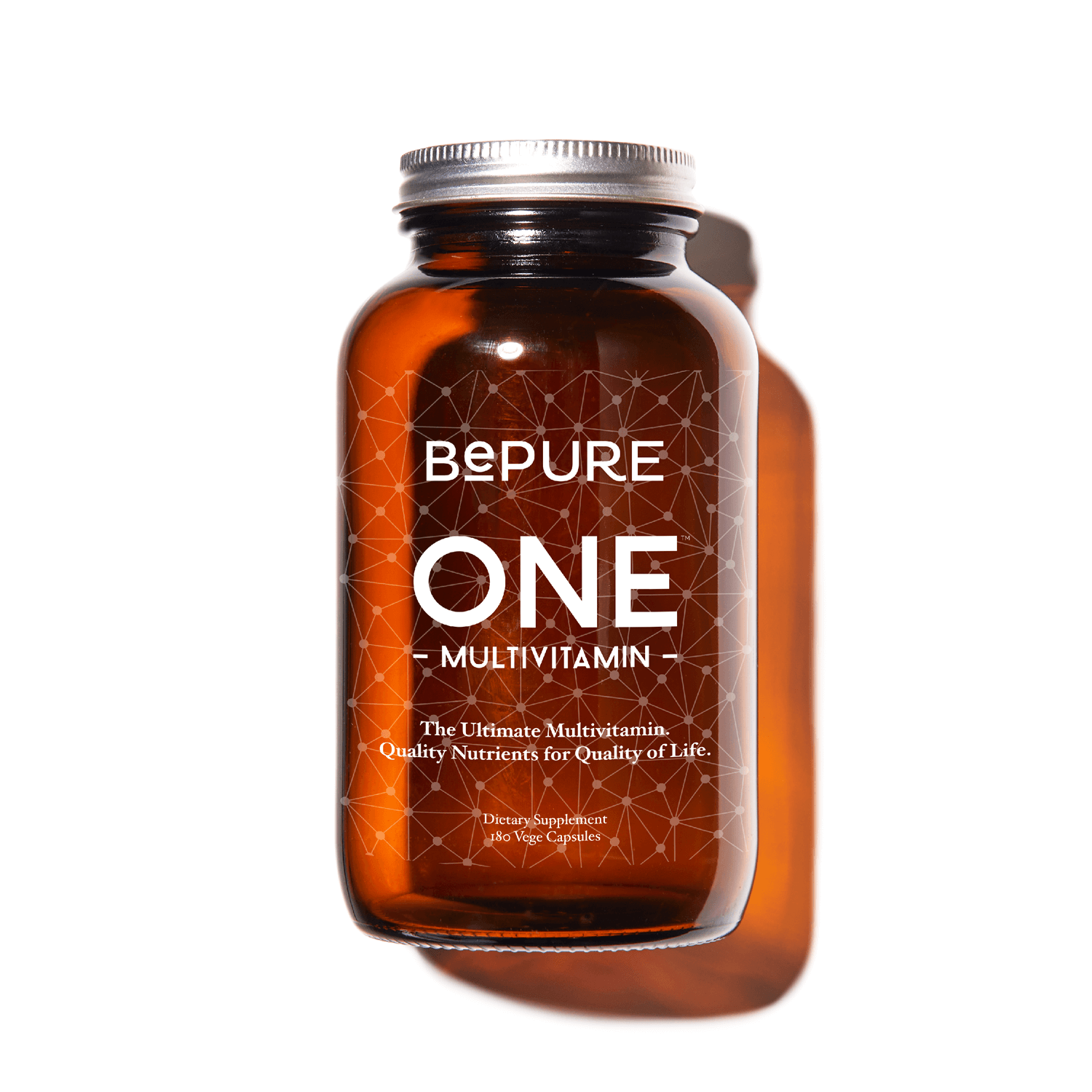The topic of weight can be a difficult one to discuss, or know where to start with for many of us. Whether we're trying to lose or gain weight, the societal pressures around it and what is perceived as 'healthy' or 'desirable' can create a lot of additional stress in our lives, especially when what we're doing isn't getting us to the outcome we're hoping for. And, perhaps lesser known, is the role of our gut when it comes to our weight.
And although the common belief is that we need to lose weight to be healthy, we actually need to be healthy to lose weight. What does this mean? The body is a beautiful and complex system, which means that it's important we look at our overall body systems and how they're interacting to understand any challenges we're experiencing with our weight.
Ultimately, it's so much more than the food we eat (calories in) and the exercise we do (calories out). As anyone who has ever struggled to gain weight or lose excess weight will tell you, it can be a complex topic. We have previously written about the impact of stress, hormonal imbalances, toxins, lack of nutrition and inflammation on our weight, however, gut health also plays a significant and fascinating role.
In this article we will look at:
- The diversity of our microbiomes
- Breaking down food to absorb nutrients
- Hormones and gut health
- 8 tips to support our gut for optimal health and weight
Gut Health and Our Weight
1. The diversity of your microbiome
Our gut microbiomes are communities of extremely diverse microbes, which can be loosely grouped into two camps: beneficial and non-beneficial. A healthy balance of the good guys can support immunity, mental wellness, weight, energy, digestion and overall well-being; whereas the not-so-good ones can have the opposite effect.
As you’ll know, a healthy diet is a varied diet, and your gut is the same: it needs variety in order to thrive. A strong diversity of beneficial bacteria supports a healthy metabolism, whereas research shows that a lack of diversity and beneficial bacteria increases inflammation in the body, which is associated with a slower metabolic rate and weight gain.
Research has also found that your microbiome impacts the way your body responds to food, implying that we can give two people the exact same food but they will have completely different responses to it depending on their bacterial makeup!
For example, if you gave someone who is lacking in microbial diversity, and someone with a thriving biome the exact same diet, the former is more likely to store excess body fat.
“We can give two people the exact same food, but they will have completely different responses to it depending on their microbiome!”
Essentially, your microbiome is totally unique to you and is influenced by your:
- Dietary intake;
- Current & past environments;
- Mother’s microbiome when you were born;
- Stress levels;
- Age;
- And so much more.
Wondering if your biome has good diversity? While microbial diversity is something we should all be nurturing, loose stools are a strong indicator that this is an area you’ll want to pay attention to.
2. Breaking down food to absorb nutrients
If you have digestive issues and you’re not able to break down your food properly this not only impacts your microbiome, but also your ability to access nutrients from your food.
Your gut is where your body digests and absorbs nutrients from the foods you eat. When we are unable to adequately break down our food, undigested larger molecules may end up in places they are not supposed to be, creating an inflammatory reaction in the gut. Undigested sugar molecules can end up feeding non-beneficial bacteria and yeasts, allowing them to multiply.
If you are not properly digesting your meals, the precious nutrients from the food you are eating may be wasted and, furthermore, undigested food can create carnage for those with leaky gut. When undigested food particles enter the bloodstream, they can overload the immune system and liver, making us more susceptible to allergies, intolerances, and illnesses.
We all want to maintain a well-balanced microbiome with optimal nutrient absorption, so keep an eye out for these indicators that your gut may be struggling to break down food:
- Acid reflux;
- Food repeating on you;
- Regular loose stools;
- Can see recognisable foods in your stool.
3. How your gut health impacts your hormones
For women in particular, a dysfunctional gut (whether it is a leaky gut, compromised absorption, or gut dysbiosis) can wreak havoc that also impacts hormones.
Just like food, hormones like oestrogen must be detoxified and disposed of by the body once they have been used, and the gut plays an important role in this process. Some forms of non-beneficial bacteria can cause old oestrogen to be reabsorbed into the body, instead of being expelled through our stools. Over time this can lead to elevated oestrogen levels, which is a common problem we saw through the BePure Clinic. This is true of men as well as women.
Normally our bodies would process this excess oestrogen through the liver. But due to factors like gut dysfunction, poor nutrition, stress and liver-loaders such as alcohol and caffeine, our liver function is often compromised and we struggle to clear it. But then where are these unprocessed toxins going?
Unprocessed toxins have to go somewhere. With no other options, our body will store them within fat cells until the liver has capacity to remove them.
Therefore, excess oestrogen tends to cause increased weight gain around the hips, upper arms or thighs. If that is where you’re holding your weight, this may be a sign that oestrogen dominance could be a concern for you.
8 Tips to Support Your Gut for Optimal Health and Weight
1. Chew your food well
The digestion process begins in the mouth, when we chew our food and mix it with saliva. The enzymes present in our saliva start the process of breaking down our food, in particular, carbohydrates. This also triggers the release of hydrochloric acid in our stomach and bile in our small intestine, readying it to receive the food and break it down effectively.
2. Drink apple cider vinegar and lemon water
Starting the day with apple cider vinegar or lemon water also helps to stimulate hydrochloric acid, which supports your body to break down foods you eat throughout the day so you can absorb the nutrients.
3. Eat right for you
Eating right for you will naturally nourish your metabolism so that it can function optimally. Ultimately, the right diet for you is the one that keeps you the fullest the longest and as a rule of thumb: The darker the colour of the food or vegetable, the more nutrients!
4. Add fermented foods to your diet
Fermented foods help restore the correct balance and diversity of beneficial bacteria in your gut. Examples include sauerkraut, kefir, kombucha, yoghurt and kimchi. These can be bought at a lot of large supermarkets, farmers markets, or even made at home.
5. Include prebiotic foods too
To ensure your beneficial bacteria thrive, include prebiotic foods in your diet. Prebiotic foods feed the beneficial bacteria living in our intestines. Legumes (chickpeas, lentils, peas) are super nourishing food for the microbiome as they’re rich in fermentables. Fiber-rich grains like quinoa, millet, rye and oats are also great fodder for the microbiome.
6. Find moments to destress
Stress is commonly associated with inflammation and leaky gut syndrome, leading to weight gain. Some tips to bring more calm into your life include; going for a walk in nature, breathing exercises or practicing restorative yoga. Taking 10 minutes a day to do some slow, deep belly breathing can lower cortisol levels and tell your nervous system that everything is a-ok.
7. Include a quality, high strength probiotic
Research shows the promotion of diverse beneficial gut bacteria with a quality daily probiotic is essential for supporting optimal digestion, nutrient absorption and ultimately our health and energy status. BePure Two is a probiotic all-rounder made up of 19 scientifically-studied strains of good bacteria.
8. Introduce a digestive enzyme
Digestive enzymes play a crucial role in gut health, functioning as catalysts to break down food for proper nutrient absorption in the body. They are needed for the effective digestion of all carbohydrates, fats and protein, while helping to regulate cholesterol and triglyceride levels. BePure Digest Assist is designed to assist in the breakdown of foods and ensure our digestive system is prepped and ready to receive food at every meal.



